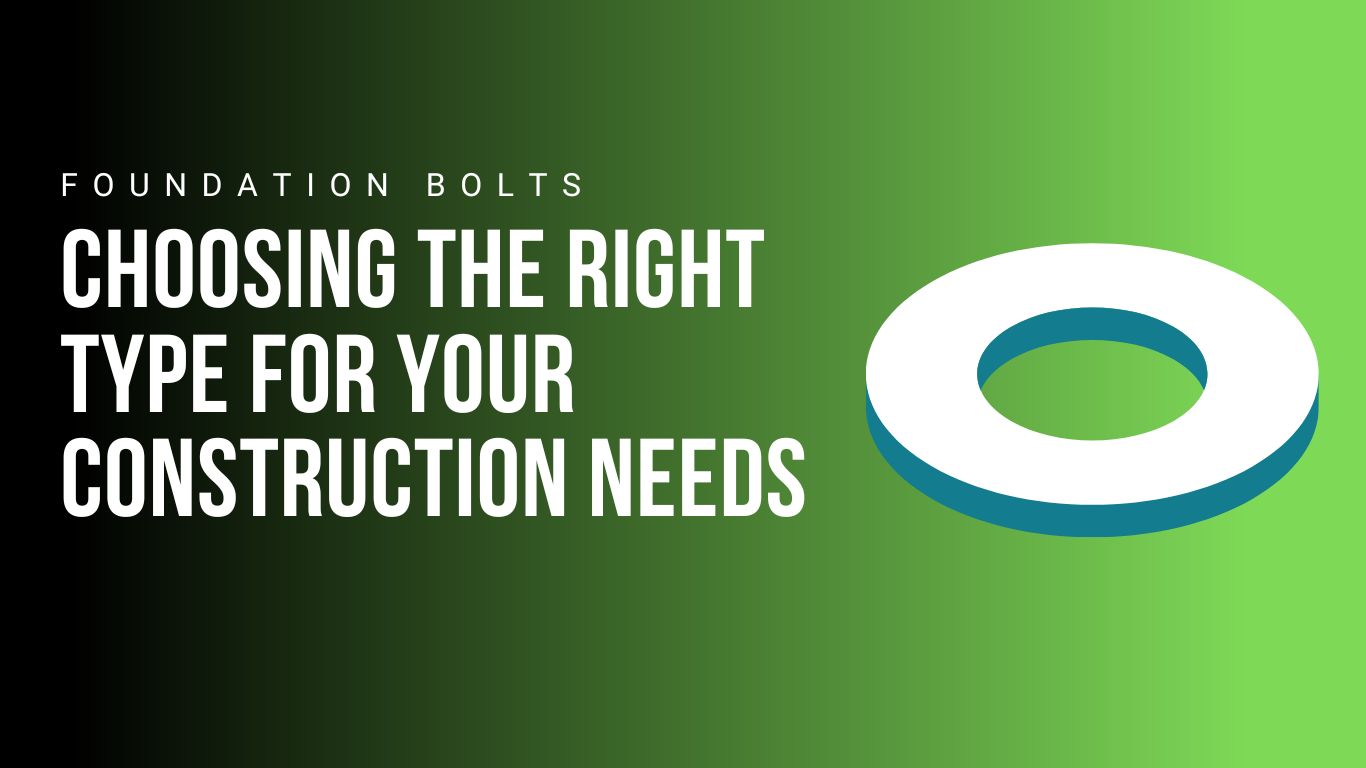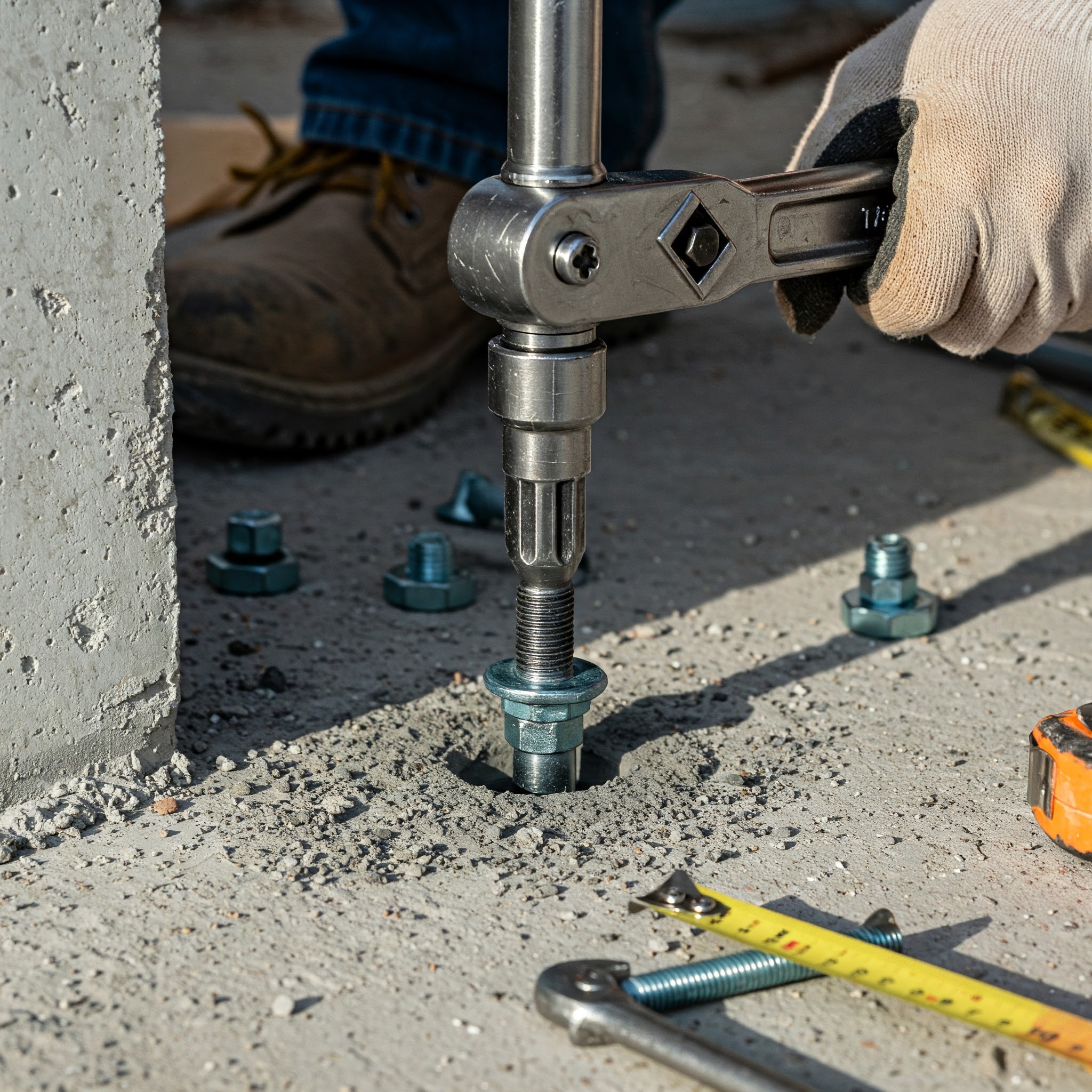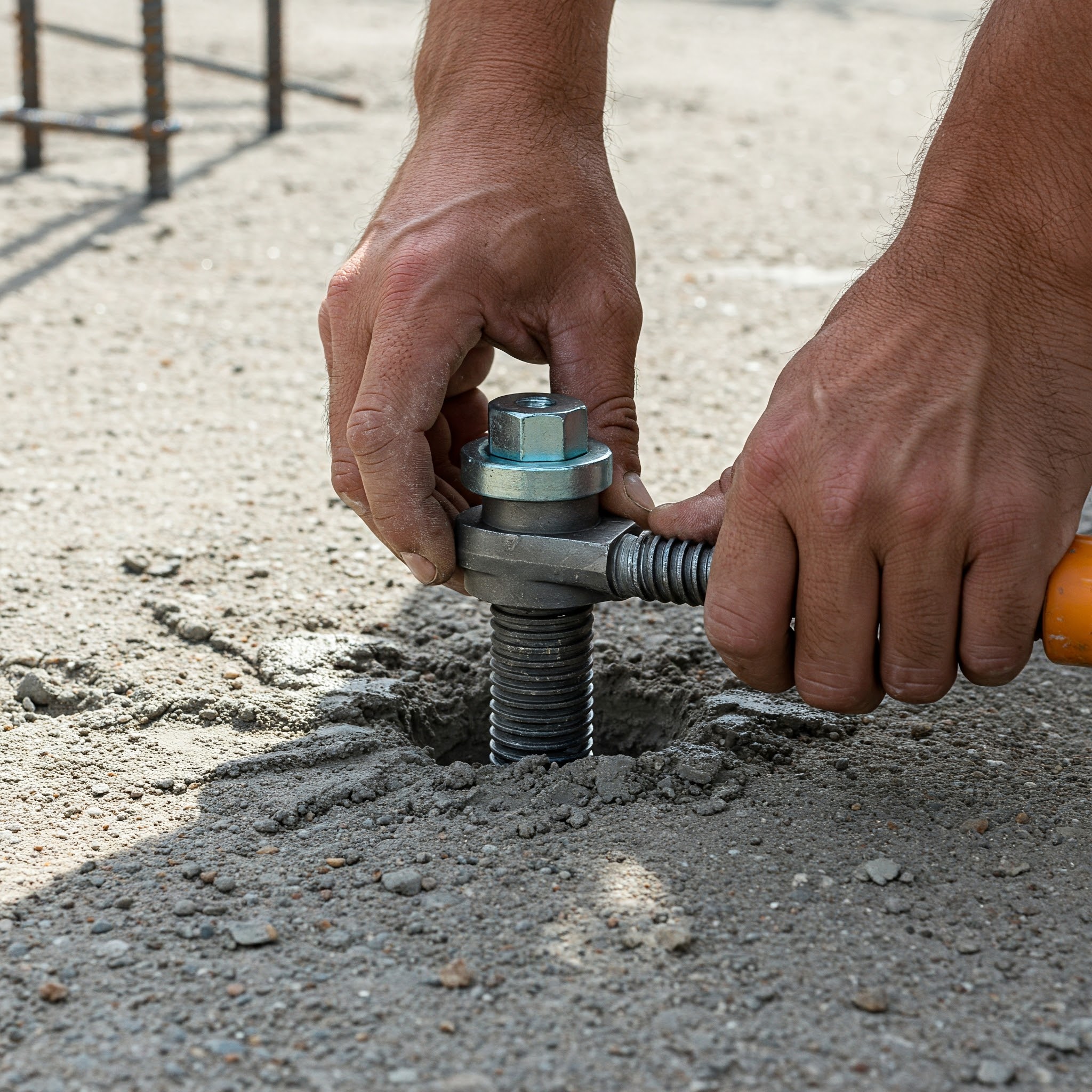Foundation Bolts: Choosing the Right Type for Your Construction Needs

Foundation bolts are essential for securing structures, machinery, and equipment to concrete foundations. Choosing the right type of Foundation boltst can mean the difference between a stable, long-lasting structure and one that fails under pressure.
In this guide, I’ll walk you through everything you need to know about foundation bolts—from their types and applications to how you can choose the best one for your specific construction needs.
Table of Contents:
- What Are Foundation Bolts?
- Why Choosing the Right Foundation Bolt Matters
- Types of Foundation Bolts
- How to Choose the Best Foundation Bolt for Your Project
- Installation Best Practices
- Common Mistakes to Avoid
- Final thoughts
What Are Foundation Bolts?
Foundation bolts, also known as anchor bolts, are used to attach structures to concrete bases. These bolts ensure stability, prevent movement, and provide long-term durability.
They are widely used in:
- Construction – Securing steel columns, beams, and heavy equipment
- Machinery Installations – Anchoring industrial machines and turbines
- Bridges & Infrastructure – Providing stability to large-scale projects
If you’re working on a construction project, understanding these bolts is crucial for ensuring structural integrity.

Why Choosing the Right Foundation Bolt Matters
Picking the wrong bolt can lead to:
- Weak Structural Support
- Increased Maintenance Costs
- Safety Hazards
On the other hand, selecting the right bolt ensures:
- Long-Term Stability – Keeps your structure firmly anchored
- Load-Bearing Efficiency – Distributes weight evenly
- Safety Compliance – Meets industry standards for construction
Let’s explore the different types of Foundation bolts so you can make an informed choice.
Types of Foundation Bolts
There are several types of foundation bolts, each designed for specific applications. Below, I’ll break down the most common ones so you can find the best fit for your project.
- L-Type Foundation Bolts
- Best for: Light to medium loads
- Applications: Buildings, towers, and poles
- Features: Bent in an L-shape for strong anchoring
- J-Type Foundation Bolts (Foundation J Bolts)
- Best for: Medium loads
- Applications: Securing steel structures and machinery
- Features: J-shaped curve for added grip
- U-Bolts
- Best for: Pipework and cylindrical objects
- Applications: Plumbing, electrical conduits, and vehicle suspensions
- Features: U-shaped with two threaded ends for tight fastening
- Straight Anchor Bolts
- Best for: Heavy loads
- Applications: Industrial equipment, heavy steel structures
- Features: Straight design, embedded deep into concrete for extra strength
- Swedge Bolts
- Best for: High-vibration environments
- Applications: Bridges, wind turbines, and seismic areas
- Features: Grooved surface for enhanced grip in concrete
- Sleeve Anchor Bolts
- Best for: Quick installations
- Applications: Temporary or removable fixtures
- Features: Expandable sleeve for a secure grip in concrete
By understanding these types, you can better assess which foundation bolt suits your specific construction project.

How to Choose the Best Foundation Bolt for Your Project
When selecting a Foundation bolts, consider the following factors:
- Load Capacity
- Determine the weight and force the bolt needs to withstand.
- Heavy-duty applications require straight anchor bolts or swedge bolts.
- Environmental Conditions
- Corrosive environments? Use stainless steel or galvanized bolts.
- High-vibration areas? Swedge bolts offer the best grip.
- Concrete Strength
- Weak concrete requires longer, deeper-anchoring bolts for better hold.
- Hard concrete allows for shorter bolts with high-strength materials.
- Installation Method
- Pre-installed bolts (cast-in-place) provide a stronger hold.
- Post-installed bolts (expansion or chemical anchors) are flexible but may not support extreme loads.
- Compliance & Standards
- Ensure the bolt meets ISO, ASTM, or DIN standards for safety and performance.
Choosing wisely here will save you from costly repairs and structural failures down the road.

Installation Best Practices
A proper installation ensures that your foundation bolts perform as expected. Follow these steps to get it right:
- Step 1: Prepare the Site
- Clean the concrete surface to remove dust and debris.
- Mark the exact locations for drilling.
- Step 2: Drill & Position the Bolts
- Use a hammer drill for precision.
- For cast-in-place bolts, place them before pouring concrete.
- Step 3: Secure & Tighten
- Use a torque wrench to tighten the nuts evenly.
- Avoid over-tightening, as this may weaken the anchor.
- Step 4: Inspect & Test Load Capacity
- Conduct a pull-out test to verify holding strength.
- Inspect for signs of movement or stress after installation.
Proper installation will prevent future failures and maintain structural integrity.
Common Mistakes to Avoid
Many construction failures are caused by improper bolt selection or installation. Here are some key mistakes to watch out for:
- Choosing the Wrong Bolt Type Not all bolts work for every application. Always match the bolt to the project.
- Ignoring Load Requirements Underestimating the required strength can lead to bolt failure.
- Skipping Pre-Installation Testing Always test the bolt’s grip before proceeding with the full installation.
- Poor Quality Materials Cheap bolts may corrode quickly, reducing lifespan.
- Over-Tightening or Under-Tightening Both can compromise the bolt’s performance. Use the correct torque settings.
Avoiding these mistakes will help ensure a secure and long-lasting foundation.
Final Thoughts
Foundation bolts play a critical role in any construction project. By understanding their types, load capacities, and installation best practices, you can ensure a stable, secure, and long-lasting foundation.If you’re still unsure which foundation bolt is right for your project, consult a professional or refer to industry standards for guidance.
About Sachin Shim
Our range of bolts includes foundation J bolts , foundation bolts , stud bolts , and U bolts, designed for structural stability and precision alignment. As a leading anchor bolt manufacturer , we provide durable solutions for heavy-duty and industrial applications. Our stainless steel U bolt manufacturers craft corrosion-resistant U bolts, ideal for marine, automotive, and construction uses. Additionally, as a trusted U bolts manufacturer and U clamp manufacturer , we offer customized fastening solutions for machinery, engineering, and manufacturing needs, ensuring strength, reliability, and optimal performance.
Author
Meet Seema, our expert author in industrial materials with a deep understanding of stainless steel shims, bolts, and shim washers. With years of experience, Seema brings valuable insights and expertise to this guide, making her a trusted source for all things related to washers. Join us as we delve into the art of crafting washers with Seema leading the way.
List Other similar blogs







